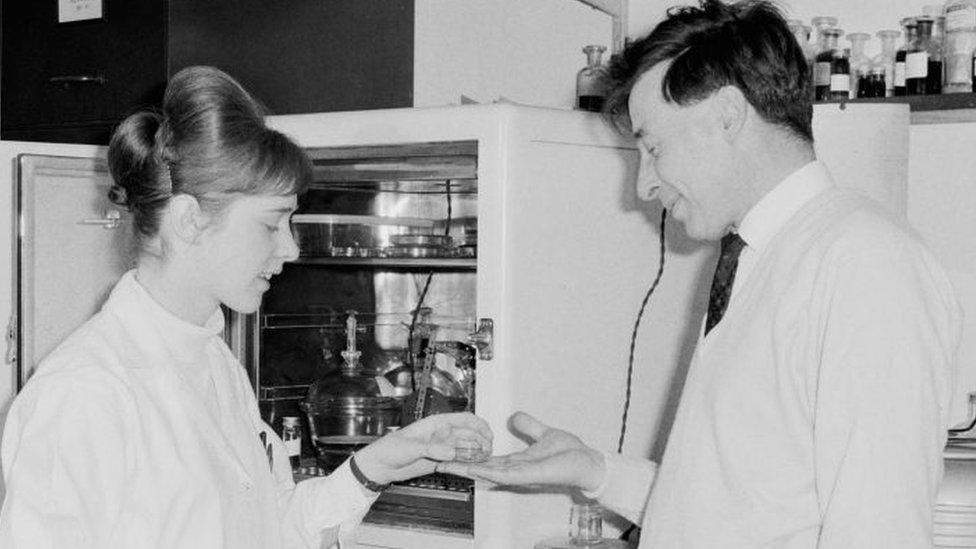Royal Oldham Hospital: Overlooked IVF pioneer nurses honoured
- Published
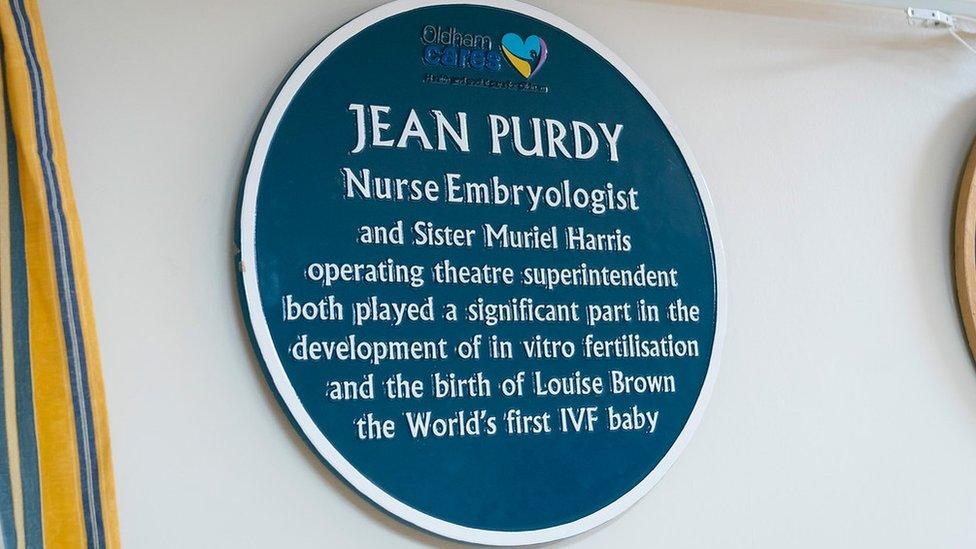
The two women never lived to see their contributions to the scientific breakthrough formally recognised
Two nurses who were overlooked by health chiefs for their crucial work in pioneering the world's first test tube baby have been honoured after 42 years.
Jean Purdy and Muriel Harris researched In-Vitro Fertilisation (IVF) at the Royal Oldham Hospital, which ultimately led to Louise Brown's birth in 1978.
Archived letters revealed they were snubbed a call for recognition in 1980.
Oldham Council said a new plaque would try to "rectify the injustice" caused by "systemic discrimination".
Scientist Sir Robert Edwards and medic Patrick Steptoe are known as the pioneers of IVF, but embryologist Jean Purdy first spotted the fertilised egg was dividing to make new cells.
She died in 1985 aged 39.
'Setting an example'
Sister Harris was the theatre superintendent both at Oldham Royal Infirmary and at Oldham and District General Hospital, the Local Democracy Reporting Service said.
Sister Harris, who died in 2007 aged 84, worked with Dr Edwards and Mr Steptoe to establish the operating theatre facilities at both The Royal Oldham and Dr Kershaw's Cottage Hospital.
The two women never lived to see their pioneering work formally recognised.
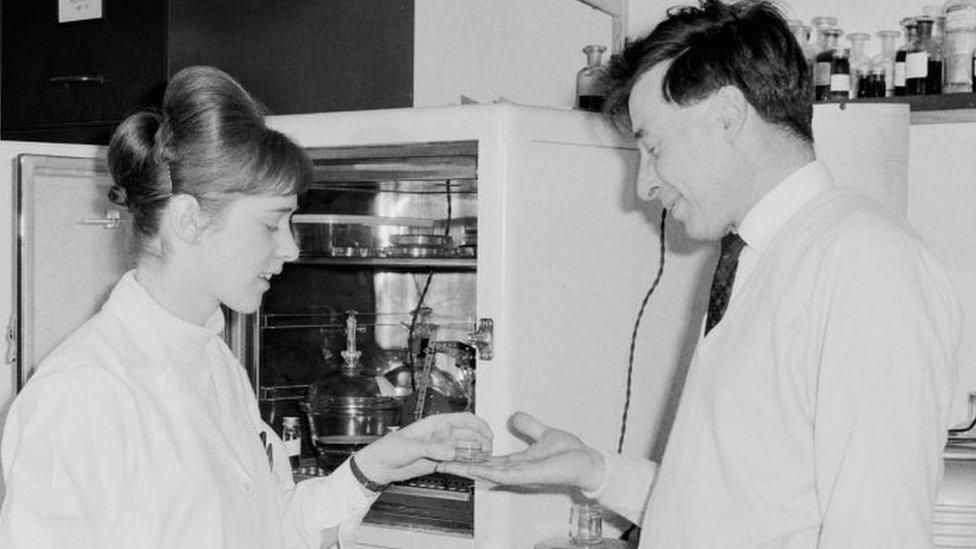
Jean Purdy and Robert Edwards worked together on the development of IVF
An original plaque was installed in Kershaw's Cottage Hospital, authorised by the Oldham Area Health Authority, which named the two male doctors, and "supporting staff", despite protestations from Dr Edwards.
Archived letters between reproductive biologist Prof Edwards and the Oldham Area Health Authority revealed his request to recognise Ms Purdy as one of the IVF innovators on a plaque was turned down.
Oldham councillor Zahid Chauhan petitioned The Royal Oldham Hospital to commit to a new memorial.
The plaque, which was unveiled on Tuesday, explains their roles in the breakthrough and is placed next to the original plaque.
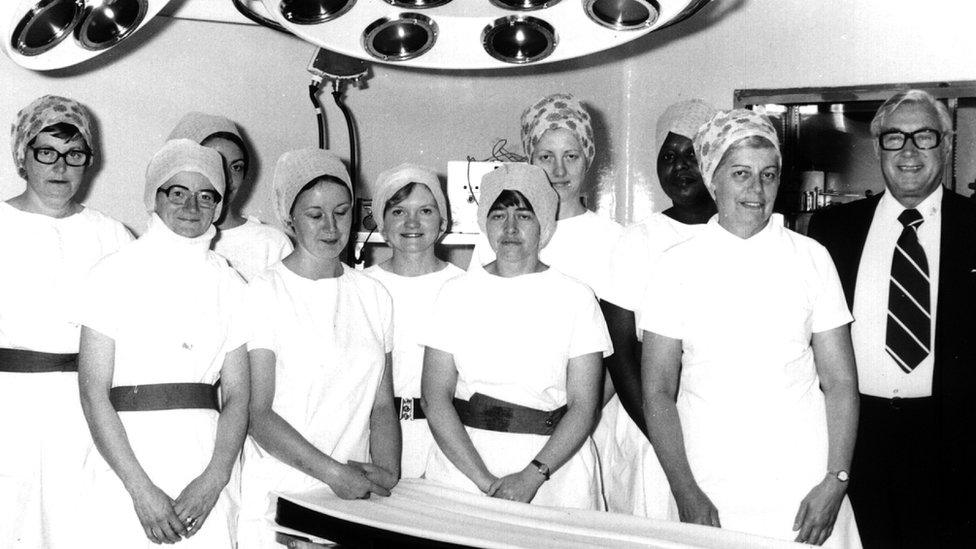
Patrick Steptoe and Muriel Harris (front, right) were involved in the early days of IVF
Mr Chauhan said the women had made a "vital contribution" and said it was "systemic discrimination which led to Ms Purdy and Sister Harris being ignored".
"But it is also setting an example that we have a collective responsibility to speak up against injustice and try to do everything possible to rectify it," he added.
Oldham hospital's chief officer David Jago said the plaque would recognise the women's "crucial roles" in developing IVF, and also "ensure our history is not forgotten".

Why not follow BBC North West on Facebook, external, Twitter, external and Instagram, external? You can also send story ideas to northwest.newsonline@bbc.co.uk
- Published8 July 2019
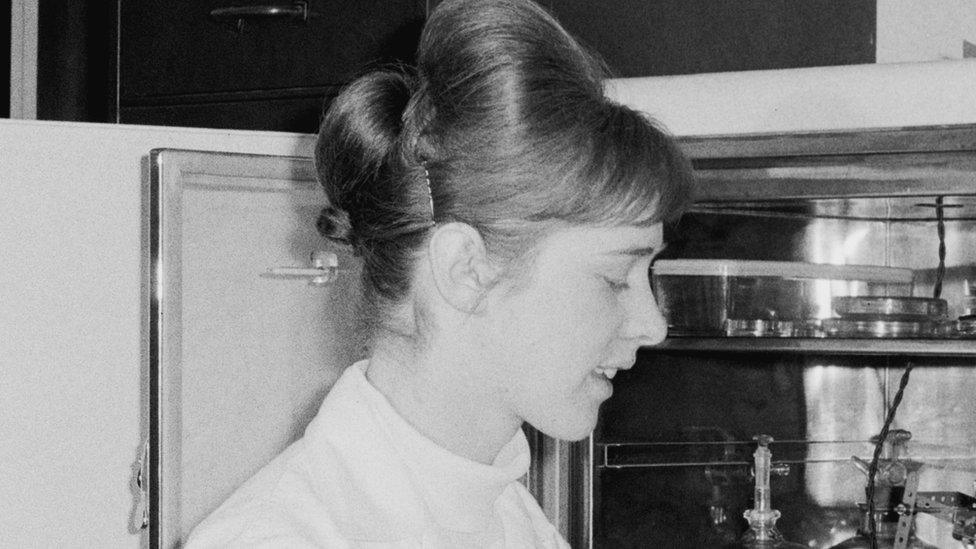
- Published11 June 2019

- Published10 June 2019
